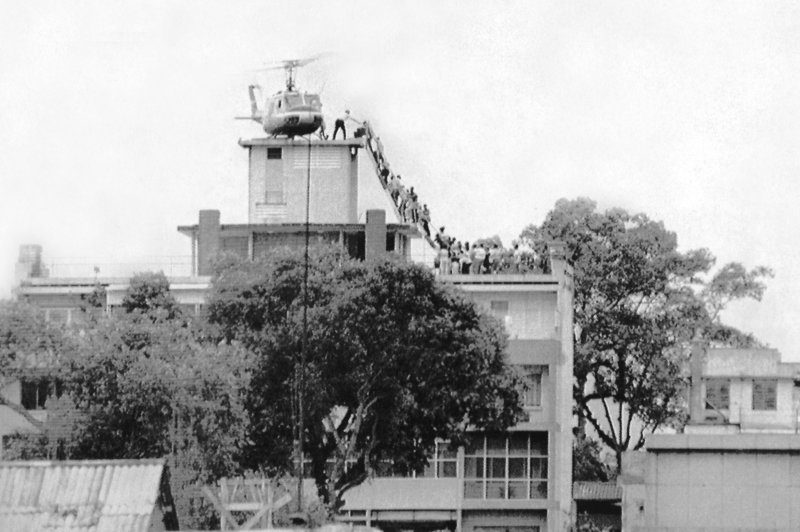Harlan Ullman, Arnaud de Borchgrave
 Here is a chastening contradiction: Since the early days of the Korean War, the U.S. military has won virtually every battle it fought. But what is the last war the United States really won? The answer is World War II.
Here is a chastening contradiction: Since the early days of the Korean War, the U.S. military has won virtually every battle it fought. But what is the last war the United States really won? The answer is World War II.After 20 years in Afghanistan, the Biden administration ordered a withdrawal of American (and by extension, NATO) military forces from Afghanistan by Sept. 11. In plain language, the United States and its allies lost, a prediction made in a 2007 Atlantic Council study on Afghanistan that began "NATO is losing in Afghanistan." But what is new?
The Korean War (1950-53) was, at best, a draw because Army Gen. Douglas MacArthur insisted China would not intervene, which it did with a million soldiers. Vietnam was a disaster. After more than a dozen years, with 58,000 American service personnel and countless Vietnamese dead, in 1975, the last American helicopter lifted off from Saigon, the tragically iconic image of defeat.
Even when the United States tried to use moderate levels of force, it often failed. In October 1983, 241 American service personnel sent to stabilize that country were killed in the bombing of the Marine Barracks in Beirut, Lebanon. Several days later, the United States invaded Grenada, allegedly to rescue American medical students enrolled at St. Georges Medical School. But the operational commander, Vice Adm. Joseph Metcalfe, told Washington the students were not in danger.
In fact, the Reagan administration launched the assault to halt construction of an airfield Cubans were building at the direction of the USSR in order to expand its Caribbean presence. But that was wrong. A U.K. company had the contract as part of a British plan to expand tourism, and it hired the lowest cost labor, which was Cuban.
The first Iraq War (1990-91) was less a war than a punitive campaign provoked by Iraq's invasion of Kuwait. In 100 hours in 1991, a coalition of some 50 states turned Saddam Hussein's army into junk metal. But that was not a full-blown war.
After the attacks of Sept. 11, the second Bush administration intervened in Afghanistan to bring al-Qaida and Osama bin Laden to justice. But the U.S. Central Command allowed Bin Laden to escape in the Tora Bora mountains of Afghanistan because the 10th Mountain Division was not trained to fight at high altitudes. Then, as attention turned to Iraq, the mission in Afghanistan metastasized to one of nation building in a country America never understood.
President George W. Bush became convinced that by imposing democracy, the "geostrategic landscape" of the Middle East could be changed. Iraqi Weapons of Mass Destruction were the casus belli. The invasion threw the region into chaos, empowering Iran and Syria and allowing Russia to exert greater influence. And of course, Iraq possessed no WMD.
The reasons why, despite the U.S. military consistently winning battles, the nation still lost wars rested in the persistent failures of administrations to understand the circumstances in which force was to be used and the hubris to assume that American power was a universal solvent or cure. Ideology, expediency and group think also induced bad judgment. And between George H.W. Bush and Joe Biden, four presidents were elected with no or minimal foreign policy experience.
Today, the Trump National Defense Strategy, approved on an interim basis by the Biden team, tasks the Pentagon to "compete, deter, and if war comes, defeat" a list of potential adversaries headed by China, "the pacing threat," followed by Russia. Yet how to achieve those aims is unclear and probably unexecutable and unaffordable, meaning each is more aspirational than practical.
What needs to be done? First, assessment of national security challenges and issues must focus beyond assessing only threats and examine more closely weaknesses and vulnerabilities of potential adversaries and dangers. Second, Teddy Roosevelt was correct about "speaking softly." Tough rhetoric alone is not a smart strategy. Third, perhaps even a greater danger, the new MAD for Massive Attacks of Disruption, must be incorporated into national security planning and strategy.
Critical strategic thinking must start by defining achievable outcomes and then developing strategy. That is not the U.S. practice. Instead, the United State is prone to allowing a combination of imprecise objectives and technology and tactics to drive strategy. This is precisely backward.
Unless American leadership acknowledges the United States' limited record in winning wars, not just battles, and ascertains why victory has been so elusive, do not expect the current defense strategy regarding China and Russia to yield better results.
No comments:
Post a Comment